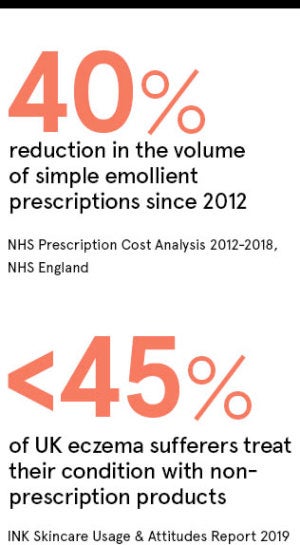It’s getting harder to see a GP. The latest NHS England survey figures show one in three patients are not satisfied with appointment times and conditions have worsened steadily over seven years. The proportion who can get through on the phone has also fallen over the same period, from 80.8 per cent to 68.3 per cent.1
Dr Richard Vautrey, chair of the British Medical Association’s GPs committee, says: “We recognise that patients are often waiting too long for appointments, and this is equally frustrating for GPs and their teams.”
But there is a simple solution for many patients: visit a pharmacy instead. Both the NHS and the National Pharmacy Association are encouraging patients with mild conditions to visit a pharmacy rather than go to a doctor. Many patients will find both the advice and treatment they are looking for, saving them time, and the NHS will be liberated to focus on urgent and severe conditions.
Part of the campaign is to explain the capabilities of pharmacists to the public. “It’s true, most consumers don’t realise what they’ll find at a pharmacy,” says Farah Ali, pharmacist at The Perrigo4 Learning Pharmacy, Warman-Freed, in Golders Green, north-west London.
“We are qualified professionals with a degree plus a year of registration training, with knowledge and expertise to advise and support patients with mild conditions. We are accessible. My pharmacy is open 8.30am to midnight, 365 days a year. And you don’t have to make an appointment. You walk in and see a pharmacist there and then.”
For conditions, such as eczema or dry skin, a pharmacist is a sensible first port of call. A pharmacist can offer advice and provide over-the-counter treatment for mild conditions. “Just go and talk to the pharmacist,” Ms Ali advises. “The pharmacist will go through every option and refer to a specialist if needed, as over the counter treatments and advise alone may not be sufficient.”
 The potency of treatments on offer at a pharmacy is higher than patients often assume. The notion that only a doctor can prescribe the right medicine is too simplistic, she says.
The potency of treatments on offer at a pharmacy is higher than patients often assume. The notion that only a doctor can prescribe the right medicine is too simplistic, she says.
“The reason some medicines are prescription only is not only due to their potency but down to many reasons such as a new drug needing time to bed in, or being restricted to certain conditions. When a medicine has good clinical data, medicines regulators may switch them from prescription only to pharmacy only medicines, allowing pharmacists to recommend these to the appropriate patient,” says Ms Ali.
A pharmacist can help navigate the options. For example, an eczema sufferer may need advice on what emollients and other steroid and non-steroid options are suitable.
“A pharmacist can explain the difference and will be able to offer the most suitable medicine over-the-counter.” she says.
“We look at many factors such as duration of use. For example, Dermalex is suitable for long term use and is OK for the face.”
If patients with mild conditions turn to their local pharmacy, they may find a more accessible, convenient service, offering advice and effective treatments. In just one category, of simple emollients, increase in self-care has already cut NHS spending by 40 per cent since 20122, saving millions.
Further progress would free up NHS time and save scarce resources. It’s beneficial for all parties. The trend will accelerate when patients realise what a remarkable service a pharmacy can offer.
Dermalex Eczema treatment is a steroid-free cream developed by dermatologists to treat mild to moderate atopic eczema symptoms, such as itching, redness and dryness.
Dermalex Repair and Restore ultra hydrating moisturiser is suitable for treatment of dry and very dry skin and helps to prevent symptoms of dry skin returning. It is also proven to increase the days without eczema by almost 50 per cent.3
Both are available without prescription from local pharmacies
1 https://www.gp-patient.co.uk/surveysandreports
2 NHS Prescription Cost Analysis 2012-2018, NHS England
3 Koppes, SA, et al, Acta Derm Venereol, 2016, 100 patients 3 vs. reference cream. Akerstrom et al. 2015 (n=198)
4 Farah Ali is employed by Perrigo, the owners of Dermalex.

